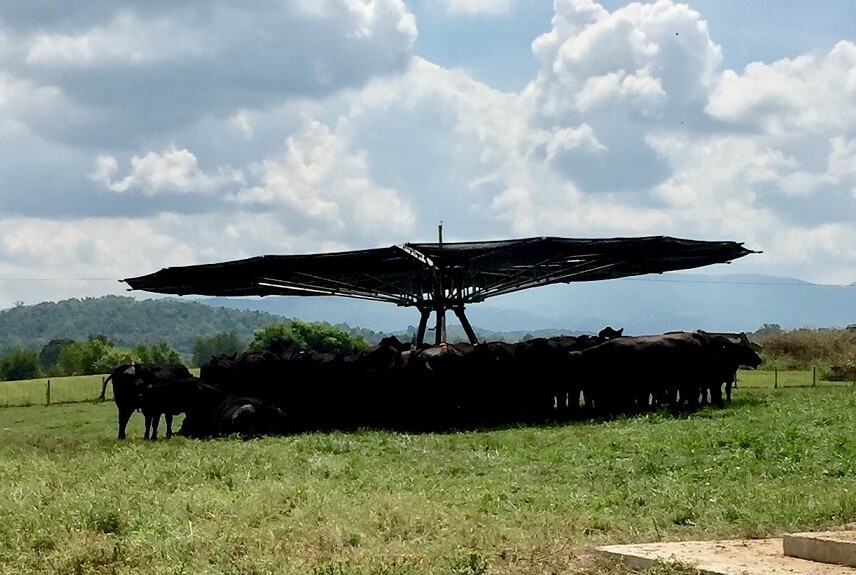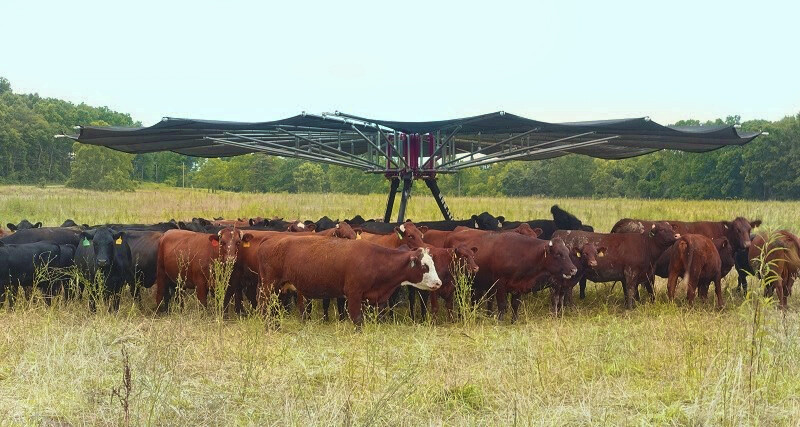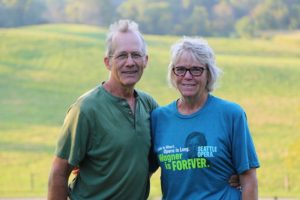If you look out across the 480 acres that make up Powell Farms in Limestone, Tennessee, you’ll likely spot at least one of the farm’s nine Shade Haven mobile shade structures, probably at the highest point in the pasture.
“Anytime you have cattle, you need shade and you need fresh air,” notes farm owner Jim Powell. “The advantage of the Shade Haven is you can put the shade on the top of a knoll where most of the air flows. Even when it is not very windy, you still get fresh air moving across, and if you move the shades daily, you are on fresh ground and fresh lie down area every day.”
The Shade Haven mobile shade structures on Powell Farms provide comfort for the farm’s 500+ Angus calves, yearlings and mature cows. Powell especially appreciates the fresh ground for the young stock. “Because the calves need a cleaner environment than a mature cow does,” he says.
About 200 calves are born each year on Powell Farms, most of them through embryonic transfer. “We do mostly IVF to produce our embryos,” explains Powell, who says the farm only raises heifers. “We sort the semen before it is put in the dish in the IVF process, which gives us about 93% females.”
A graduate of the University of Tennessee agriculture school in the 1950s, Powell has worked off and on in the ag industry over the last 60+ years. He has worked closely with the university on a number of projects, including a new genomics center set to launch in 2018.
Earlier this year, Powell donated two Shade Haven structures to his alma mater, after university representatives were impressed with the shades they saw on a visit to Powell Farms.
“They are using them for a heifer program,” adds Powell. “They feel the same way; the cross flow of air is a huge advantage.”
Sharing his time between the farm and his business, Powell Construction, Powell appreciates the ease with which the shade units can be moved and redeployed. “It takes 15 or 20 minutes, but it is a one-person job and I think that is an advantage.”
Powell notes the slip tongue feature on the dolly tongue makes it easy for one person to hook up and move the unit. “The Shade Haven is very simple to use,” he adds. “They are easy to move, and they withstand wind. We have never had any damage to a single one because of wind.”
Practicing rotational grazing and feeding primarily forage-based product, Powell Farms adheres to the highest standards in its Angus program. Shade Haven is proud to part of that program. Discover more about Powell Farm’s superior Angus cattle at powellfarms.net.


